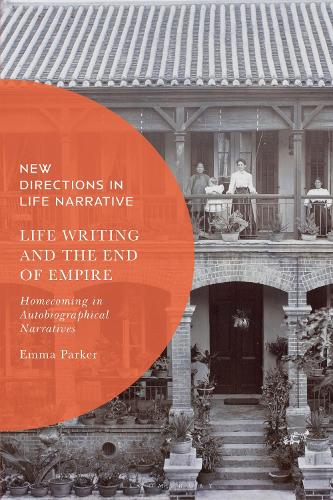
Life Writing and the End of Empire: Homecoming in Autobiographical Narratives
(Paperback)
Available Formats
Publishing Details
Life Writing and the End of Empire: Homecoming in Autobiographical Narratives
By (Author) Dr Emma Parker
Bloomsbury Publishing PLC
Bloomsbury Academic
30th October 2025
United Kingdom
Classifications
Professional and Scholarly
Non Fiction
Literary studies: c 1900 to c 2000
Biography and non-fiction prose
Colonialism and imperialism
Physical Properties
Paperback
208
Width 156mm, Height 234mm
Description
The dismantlement of the British Empire had a profound impact on many celebrated white Anglophone writers of the twentieth century, particularly those who were raised in former British colonial territories and returned to the metropole after the Second World War. Formal decolonisation meant that these authors were unable to go home to their colonial childhoods, a historical juncture with profound consequences for how they wrote and recorded their own lives.
Moving beyond previous discussions of imperial and colonial nostalgia, Life Writing and the End of Empire is the first critical study of white memoirists and autobiographers who rewrote their memories of empire across numerous life narratives. By focussing on these processual homecomings, Emma Parkers study asks what it means to be at home in memories of empire, whether in the settler farms of Southern Rhodesia, or amidst the neon lights of Shanghais International Settlement. These discussions trace the legacies of empire to the habitations and detritus of everyday life, from mansions and modest railway huts, to empty swimming pools, heirlooms, and photograph albums.
Exploring works by Penelope Lively, J. G. Ballard, Doris Lessing, and Janet Frame, this study establishes new connections between authors usually discussed for their fiction, and who have been hitherto unrecognised as post-imperial life writers. Offering close, sustained analysis of autobiographies, memoirs, travel narratives, and autofictions, and identifying new subgenres such as speculative life writing, this book advances rich new readings of autobiographical narrative. By tracing the continuing importance of colonialism to white subjectivity, the role of imperial memory in Britain, and the ways that these unsettling forces move beneath the surface of modern and contemporary literature, this study offers new conceptual insights to the fields of life writing and postcolonial studies.
Reviews
Emma Parker presents a masterful close reading of the life-writing of Penelope Lively, J. G. Ballard, Doris Lessing, and Janet Frame Parkers work should appeal to all scholars interested in the wider oeuvres of these major writers and also writing teachers, especially those involved with creative non-fiction, since her study adds new dimensions to the intersectionality of usually separated genres of fiction and life-writing. * CHOICE *
Author Bio
Emma Parker is Lecturer in Literature and Gender at the University of Bristol, UK. She is the author of numerous journal articles and book chapters on life writing, modern Anglophone literature, colonialism, and graphic narratives. She is the co-editor of British Culture after Empire (2023).
